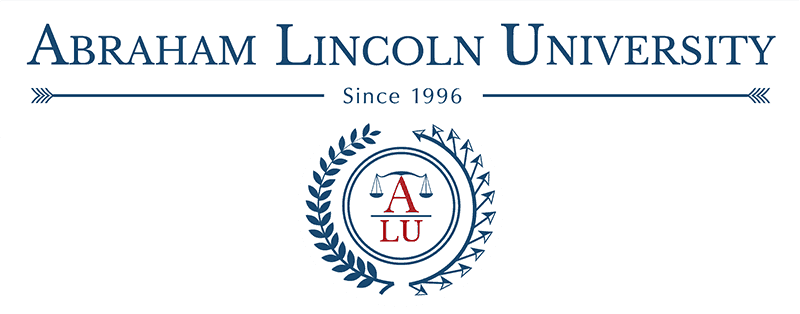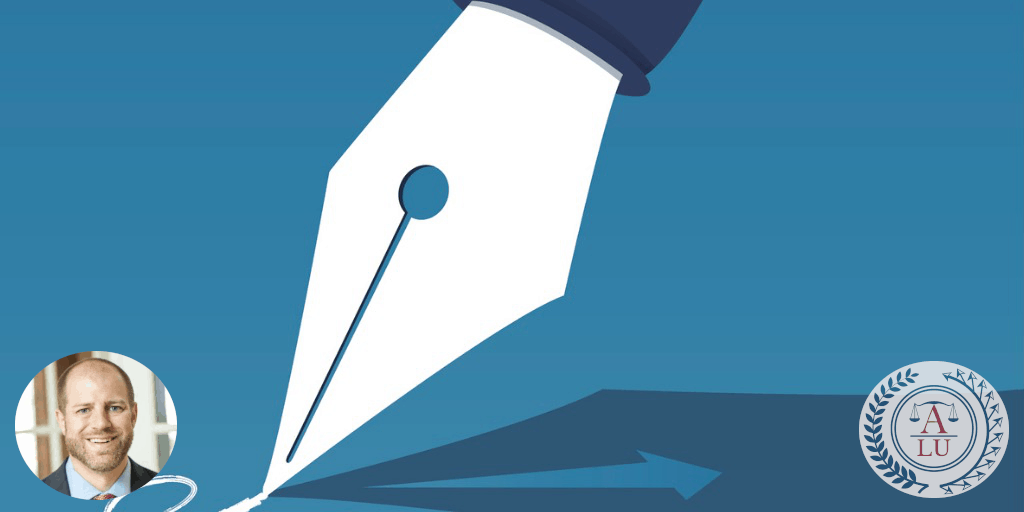If the world of law school is somewhat new to you, you may be wondering if you’ll be subjected to the Socratic method of teaching. The answer: “it depends”. For example, as an online law school, Abraham Lincoln University primarily employs a “Flipped Classroom” model. With this model, students view one weekly lecture on their own time, allowing them to gather questions and prepare for an informed and engaged group discussion in the next session. However, the likelihood of experiencing the Socratic method increases with more traditional law schools.
To best prepare for this style of teaching, let’s take a look at what the Socratic method is, where it came from, why it’s used, and why it works.
What is the Socratic Method?
The Socratic method was derived from the Greek philosopher, Socrates. In order to delve into his students’ view, he would ask them questions until any contradictions were exposed. Socrates also used this method of questioning to encourage people to question the things they were told and to look beyond the obvious.
Today, the Socratic method is often used in medical and legal education in order to help students tap into more difficult concepts and/or principles. Under the Socratic method, there are various ways that professors can question their students. Typically, however, the questioning usually lies at opposite ends of a spectrum.
For example, a professor might pick a student at random and question them (rapid-fire) for the entire duration of the class. The ultimate goal is to trip the student up and cause holes in their argument.
At the other extreme, a professor could choose a group of students and discuss legal principles. This approach uses the Socratic method as a collaborative tool for learning rather than for intimidation.
Regardless of the route chosen, the same basic identification questions begin the inquiry:
- The parties
- The facts of the case
- The issues
- The procedural posture
- The decision
- The reasoning for this decision
Through the course of questioning, the questions will become less straightforward and will often require the student(s) to analyze the current case against others they may have studied earlier.
Example of a Socratic Method Lesson
This type of lesson begins when the professor calls a student (or group of students) at random and asks for a summary of the case from the previously assigned reading. The student(s) will be required to recite a brief summary, including the facts of the case, the issues involved in the case, and the court’s holding and rationale on the case.
Based on the answers the professor gets, he or she may ask follow-up questions. The goal of these questions is to reveal some of the many possible arguments that can be made against the student’s argument. The professor may also ask questions in order to reveal the different ways that an argument can be framed.
Next, the student(s) could be asked whether they agree or disagree with the court’s holding. Typically, they will also be asked to explain why. Professors may also theorize different facts that could change the given case. At the same time, the student(s) will often be asked to apply the court’s rationale and their own thinking to these new facts.
The Modern Way
Today, the Socratic method differs from the historical version of the method in that it doesn’t rely completely on the answers students give. Rather, it’s driven by a specific set of questions that are designed to lead students to a given idea. By setting up the questioning this way, professors are able to keep their classes engaged and excited about the discussion.
Moreover, using questions that students understand allows them to immerse themselves in an atmosphere where students are actually learning rather than simply parroting back information and forgetting it as soon as they can.
Why Use the Socratic Method?
There are 3 main reasons the Socratic method is still used today.
- It helps develop critical thinking skills.
- It gets students ready to think quickly.
- It forces students to be prepared and attentive.
The Socratic method leads to critical thinking skills by showing students how to identify the weak points in an argument. Once they can identify what makes an argument weak, they can then strategize the argument at a higher level. By teaching students to respond to questions quickly, it prepares them for a judge’s rapid-fire questioning. Being forced to always be prepared and attentive teaches students accountability.
Furthermore, the Socratic method of teaching is useful for students who plan on working in areas of law that require more “on-your-feet” thinking. Two such examples include litigation and negotiation.
The Socratic method is also used to help arouse curiosity in students. By making them think in different ways about various subjects, it encourages them to wonder how things could be different. Additionally, it takes learning from a passive experience to a participatory experience.
Pros and Cons
Advantages of the Socratic method include:
- Gaining active learning and listening skills
- Promotion of critical thinking skills
- Learning how to be challenged and what to do when challenged
- Discovering how to examine issues in-depth
Disadvantages of the Socratic method include:
- Easy failure rate without student participation
- A fear of public speaking is common
- Loss of interest possible when a professor is speaking with an individual student
- There is often no right answer (some students dislike this)
- It’s sometimes difficult to handle the multiple responses for a given question
Get Ready, ‘Cause Here it Comes
It’s almost a given that you’ll encounter the Socratic method at some point in law school, however, it’s most commonly encountered by first-year law students. Given the nature of the Socratic method, there’s truly no way to prepare fully, but these tips will help.
Complete Your Reading
The best way to prepare is to complete all readings for every class. This may involve reading a lot of material, but spending hours reading is the only way to ensure that you are ready if the professor decides to call on you.
Prepare Your Briefs
It’s also important to prepare briefs for all your cases. In your briefs, make sure you have all the information discussed above about the Socratic method’s basic identification questions. Helpful methods for preparing briefs include writing short summaries for each bullet and using colored-coded highlighters to identify the components.
Whichever method works for you, make sure you can quickly and easily identify the specifics when and if you are asked.
Dispel Your Fears
Put your usual sensitivities aside and dispel your fears about being wrong. If you’ve prepared for the class by doing your readings and studying your cases, being incorrect about an argument isn’t the end of the world. Your professor and peers aren’t going to look down on you — primarily because it will eventually be their time on the hot seat, or they’ve already had the pleasure of experiencing it themselves.
Get Used to Speaking in Public
Getting comfortable with public speaking is also a great way to prepare for the Socratic method. With more practice, you will likely be able to access more of your own attention, allowing you to provide more intelligent answers to the professor’s questions.
Answer the Question
Lastly, remember that providing a wrong answer is better than no answer at all. Your professor will likely lead you along the right course of thinking. After all, the intention of the Socratic method is to help students gain critical thinking skills.
There’s no doubt that it’s beneficial for those looking to pursue a career as a lawyer to familiarize themselves with the Socratic method. It’s one of the best ways to start preparing for law school and the legal profession, regardless of whether you plan to be a courtroom litigator or a legal researcher.
About the Author As the founder of Scholle Law, a Duluth, Georgia law firm specializing in personal injury and wrongful death cases, Charles Scholle works tirelessly to ensure his clients receive the care they need. As a native of Georgia, Charles attended the University of Georgia for both his undergraduate and law school. He also spent time in England learning about how their system of law forms the basis of the American legal system. He is one of Georgia’s Top 100 Trial Lawyers.
As the founder of Scholle Law, a Duluth, Georgia law firm specializing in personal injury and wrongful death cases, Charles Scholle works tirelessly to ensure his clients receive the care they need. As a native of Georgia, Charles attended the University of Georgia for both his undergraduate and law school. He also spent time in England learning about how their system of law forms the basis of the American legal system. He is one of Georgia’s Top 100 Trial Lawyers.
Master Legal Writing with the IRAC Method
What to Know before Becoming a Lawyer
Attorney Roundup: Learning to Practice Law, Part 1
Let ALU Help You Earn Your Degree 100% Online. If your career success can't be put on hold, Let's Talk Now!










